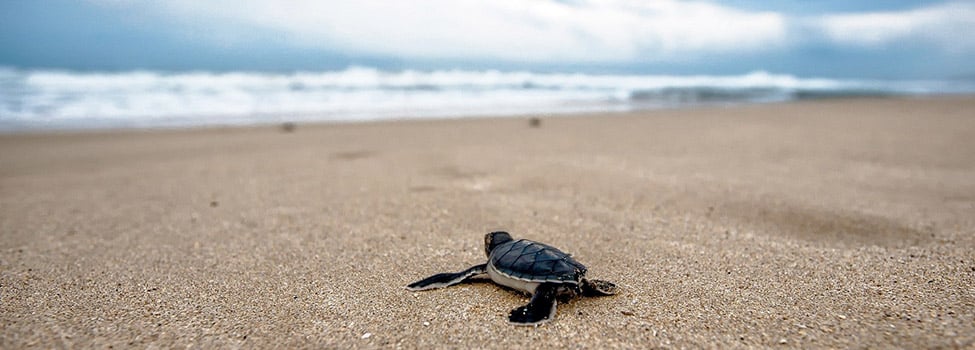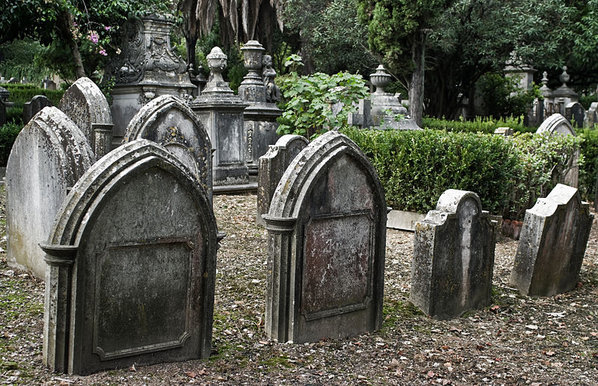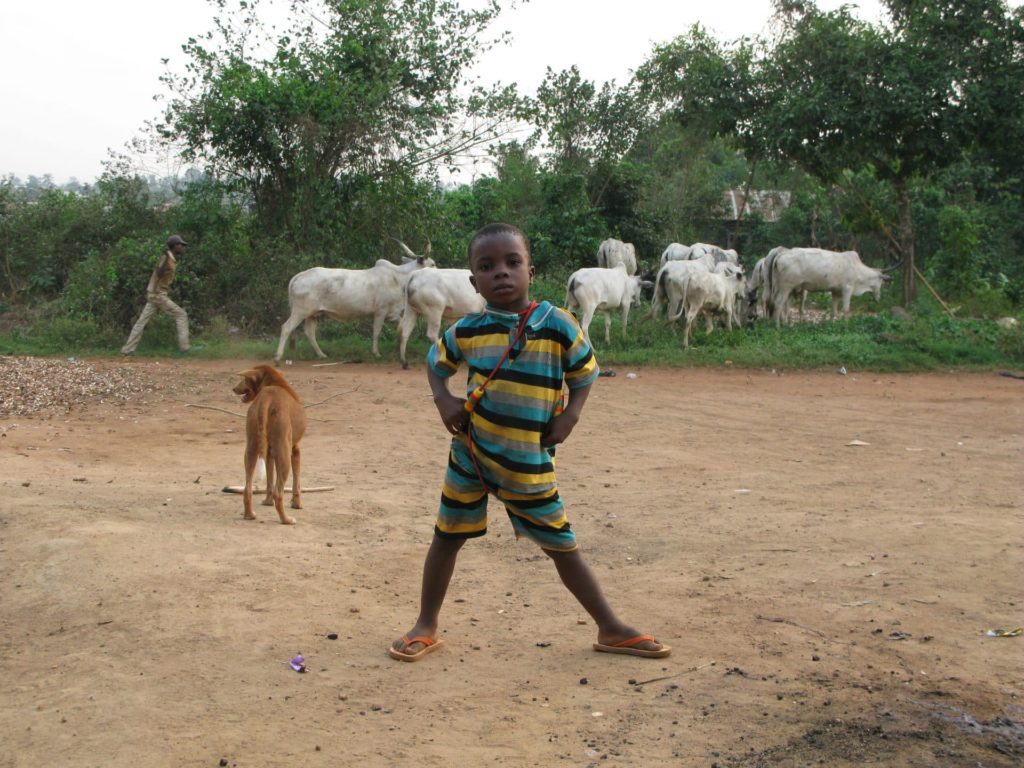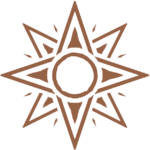Earth, Ancestors, and Ritual: Where to Begin?

A question we often receive at Ancestral Medicine is, “Where do I start?” Daniel shares that his own entry into ritual arts included little guidance – or rather, “an excess of disorganized instruction” – so this seemingly simple question is actually quite involved.
Before getting started, it’s important to acknowledge that most learning and developmental pathways– maybe especially those involving ritual skill building – are anything but linear. Partly due to generations of cultural disruption, many seekers must now piece together bits of teachings to fit their circumstances. We start in one place and circle back to various teachings and life lessons, often years later, through unpredictable detours. Our go-to advice is: the best practices are often the ones that you’ll actually engage with. Take what resonates now, and leave the rest or come back to it later.
Through studying cross-cultural teachings and shared understandings among diverse traditions, Daniel explains that there are some generalizations we can make. Below is a very simplified look at some of the themes you may encounter, and entry points for deepening into a particular area of study. It’s also important to note these are not in any specific order or implied hierarchy as everyone’s experience is truly unique. We’ll also note some resources for seeking additional support in your learning.
Where to begin? Animism and greeting our other-than-human kin
Animism is a way of relating with the world that recognizes that living humans are just one kind of person and that all the other people are also legit and worthy of our respect and consideration. These others include our ancestors, the animals and plants, mountains and rivers, planets and stars, the gods, elemental powers, and so forth. Animism acknowledges that humans are not separate from our other-than-human family and embodying these values means grappling with the implications of our personal ethics, interpersonal relationships, sense of belonging, and spiritual practices.
If you weren’t raised with an embodied ethic of inter-being or inter-relatedness, this is a great place to begin. It’s more about core values and reclaiming our humanity than any specific practice.
“Animism, Indigenous wisdom, earth spirituality, ecopsychology, shamanism, paganism, eco-dharma, or just Earth-friendly etiquette; find any way to anchor your core values in an ethic of relationship that extends beyond the human realms. This is part of the inheritance of all peoples, even if it means sifting through centuries of colonialist, imperialist rubble to find the living heart of your ancestral traditions.” – Daniel Foor
Books Daniel recommends for further exploration:
- Braiding Sweetgrass, by Robin Wall Kimmerer
- Animism: Respecting the Living World, by Graham Harvey
Ancestral Medicine course offerings to consider:
- Animist Psychology (self-paced)
- Practical Animism (live & interactive)
- Spirit Contact for Beginners (live & interactive)
From the Vault: Free teachings to explore:
Where to begin? Embracing ritual in your daily life
Ritual, ceremony, or spiritual practice by whatever name is the most fundamental way in which core values are transmitted from generation to generation. Most often, ritual arts are learned within the vessel of a specific lineage of practice.
For many, finding a lineage or form that speaks to them personally emerges naturally. For others, the search for an accessible teacher, community and relevant teachings can feel daunting or even discouraging. Further, the actual pedagogy of ritual arts can be confusing or stretch comfort zones in unpredictable ways. The learning style is often what is implied versus what is explicit – more like, “do this and trust,” rather than, “do this because of these assumptions and here is the expected outcome.”
For folks who have little frame of reference, being able to frankly question and discuss the basics of ritual in non-dogmatic, beginner-friendly ways can build trust and feel empowering.
“Whether it’s ritual to thank those whose bodies we eat for sustenance, a practice of honoring our ancestors as our extended cultural body, or diverse forms of meditation and prayer to cultivate grounded power and presence in the world – rituals invite us to embody our core values in intentional and relational ways.” – Daniel Foor
Ancestral Medicine course offerings to consider:
- Foundations of Ritual (self-paced)
- Initiations: A Life of Ritual (live & interactive)
From the Vault: Free teachings to explore:
Where to begin? Ancestor reverence and family healing
Ancestral healing is both selfish and a form of service, personal and cultural healing. When we help those in our lineages who are not yet at peace to find their place as wise and kind ancestors, we in turn receive the benefit of connecting to a more healed web of ancestral influence. Ancestral healing that is focused on our direct bloodline also grounds our personal healing in a wider context. Challenges that once seemed personal begin to look more cultural and systemic.. We make our connection to both intergenerational blessings and hardships more conscious and intentional. This is key toward understanding the global impact of spiritual healing work. In our experience at Ancestral Medicine, Daniel and our network of practitioners have observed time and again how personal and familial healing gradually gives way to more direct cultural healing.
“Consider ancestral lineages as you might think of a specific person. If someone is in agony due to an injury, it’s probably not the time to deconstruct the gender binary or uproot internalized white supremacy. When enough healing has occurred to reduce the pain to manageable levels, new pathways of reflection and introspection open up.
Likewise, if your lineage dead are troubled ghosts, they first need healing and reconnection with the older, healthy collective of the ancestors. At that time, from their new-found place of wholeness, their journey and our own often become indistinguishable, and our ancestors can become more conscious allies for the critical work of cultural transformation.” – Daniel Foor
Daniel’s book for further reading:
Ancestral Medicine course offerings to consider:
- Ancestral Lineage Healing (live & interactive)
- Beyond Blood Ancestors (live & interactive)
- Care for the Dead and Dying (self-paced)
Professionals who offer one-on-one work, including low income:
Where to begin? Cultural literacy, sensitivity, and Earth-honoring ethics
Cultural literacy includes taking personal inventory of how your education about the world is incomplete or reflects problematic biases. Ancestral healing is not a substitute for ongoing cultural education. However, seeing our lives in a broader ancestral context can lead us to ask more insightful questions around ways that systemic troubles like patriarchy, white supremacy, settler-colonialism, and exploitative economic systems intersect our lives and divide us from one another.
Over time, this inquiry supports cultural literacy and a more robust embodiment of our core values. This ongoing unlearning and relearning is crucial for anyone who seeks to be a socially conscious human being.
As we become more settled into our specific cultural skin or identity, other layers of belonging often emerge. Belonging can be such a tender and painful topic, especially given the unconscionable harms inflicted by colonialism and ecological destruction. Facing the troubles that we have unleashed as a species on our extended kin is a natural part of going deeper on the path – and one way in which our sense of self changes through animist practices and ritual arts.
Examining our personal cultural identity can also lead to holding greater space for our relationship with Earth and the ancestors of the places where we reside. A Yoruba proverb states, “May my character not interfere with my destiny.” Similarly, we can work to prevent our conditioning and blind spots from interfering with our ability to realize our potential.
“Belonging can’t be stolen, bought, or transferred. It’s a function of a sustained relationship over time. And in the case of those forcibly relocated or those who killed or removed others by force, layers of ancestral grief function as gateways to a more profound sense of connection with land and place. If ancestral healing doesn’t function as a catalyst for grieving, tapping into the deeply human instinct to belong almost certainly will lead to weeping with the Earth for all the troubles of recent centuries.” – Daniel Foor
Ancestral Medicine course offerings to consider:
- Inhabiting the Times (self-paced)
- The Opening Earth (self-paced)
From the Vault: Free teachings to explore:
Where to begin? Personal integration and being in service to others
In this context, personal integration is how we move toward an alignment between worldview, core values, and everyday life. Sustained personal and ancestral healing – combined with an increased cultural and Earth awareness – can lead to significant changes in our relationships, our vocation, and how we choose to spend our time. This reorganization is rarely predictable, but a common theme might be something like committing to a values-driven life.
Consider finding ways to deepen your understanding of the intersections of culture and ritual with heart, mind, and psyche, even if you have no interest in a career in healing arts, education, or cultural change work per se. Ask your ancestors and other supportive powers in spirit to guide you to the right people and situations that will enable you to deliver the goodness that you brought with you to Earth.
“Implications of an animist worldview are such that one’s service may not be limited to care for other living humans. Some are called to sustained engagement with plants, animals, or fungi; some focus their ethic of care with the human dead or with those not yet born; some care for systems and institutions or for ecosystems in all their complexity; some work on even more esoteric realms with spirits of place or other unseen powers.
The common thread is relationship and learning to express love, wisdom, an ethic of profound interdependence in whatever relational terrain corresponds to our specific life path and calling. There is no personal enlightenment, no awakening apart from others.” – Daniel Foor
Ancestral Medicine course offerings to consider:
- Ancestral Healing Practitioner Training (live & interactive)
From the Vault: Free teachings to explore:





